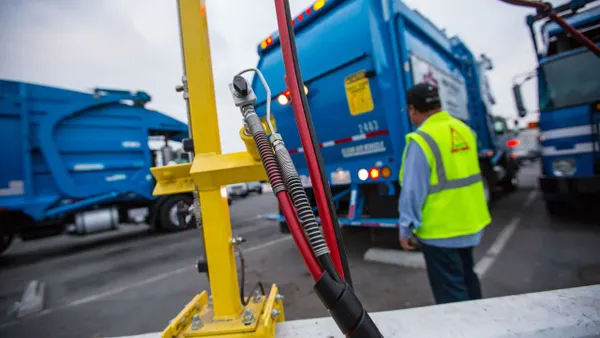Dive Brief:
- A new study published on behalf of the Agricultural & Applied Economics Association claims measures of food waste are "inconsistent" and may be overstated.
- The authors of the study cite four different definitions of food waste — attributed to the Food and Agriculture Organization of the United Nations (FAO), U.S. Department of Agriculture (USDA), E.U. Fusions, and Environmental Protection Agency (EPA) — stating they are all "lacking in some way." The authors simplify their definition of food waste as "the difference between the amount of food produced and the sum of all food employed in any kind of productive use, whether it is food or nonfood."
- The definition of food waste by the authors illustrates that food waste, under the parameters of other definitions, is overestimated — in part because measurements value food waste at retail price, rather than upstream prices.
Dive Insight:
In a time when states are giving tax credits to farmers who donate food and cities are expanding organics collections to divert food waste, it's become almost apocryphal that food waste is one of the most pressing issues that the food industry has to face. Therefore it's an unusual take that, rather than underestimating the problem of food waste, experts are giving it too much weight.
The researchers didn't write the paper to convince people to ignore food waste or to prioritize other forms of waste diversion. The authors' claim is that food waste may not be as severe a problem as some think because food can be utilized or spent in different ways along the production stream. So long as food doesn't end up in a landfill, the authors say, it isn't wasted — even if it doesn't end up on someone's dinner plate. Though the authors do hint that this inconsistent understanding of food was may have "severe consequences for public policy."
Whether or not the estimates on the tonnage of food waste are overestimated or underestimated, food waste is, and will remain, a large sector of the American waste industry. Municipalities from Boise, ID, to exurbs of Portland, OR, are working to expand their capacity for dealing with food waste. As public interest in, and support for, composting and other various diversion efforts continues to grow, waste haulers nationwide will have to develop and strengthen capacity for food waste collection.









